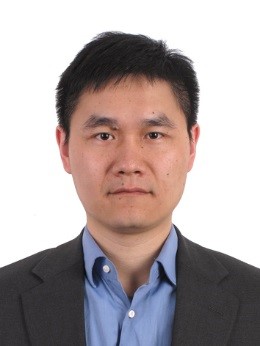 ZHANG Xueli, Ph.D.
ZHANG Xueli, Ph.D.
Principal Investigator, TIB, Tianjin, China
Tel: 022-84861983
Fax: 022-84861983
E-mail: zhang_xl@tib.cas.cn
Education
1996-2000 School of Life Sciences and Biotechnology, Shanghai Jiao Tong University, B.S.
2000-2005 School of Life Sciences and Biotechnology, Shanghai Jiao Tong University, Ph.D.
Professional Experience
2005-2007 Department of Microbiology and Cell Science, University of Florida, Post-doctoral
2007-2010 Department of Microbiology and Cell Science, University of Florida, Research Assistant Professor
2010- Tianjin Institute of Industrial Biotechnology, Chinese Academy of Sciences, Professor
2015- The Key Laboratory of Systems Microbial Biotechnology, Chinese Academy of Sciences, Director
Research Interest
Our group has been interested in constructing microbial cell factories for production of bulk chemicals and plant-derived natural products through metabolic engineering and synthetic biology. Research interests include:
(1) Identification of new enzymes for natural products synthesis using metabolic engineering platforms, followed by enzyme optimization.
(2) Design and construction of synthetic pathways, followed by pathway optimization through coordinated gene expression, cofactor engineering and metabolic evolution.
(3) Optimization of cell physiology through adaptive evolution, followed by characterization of their genetic mechanisms.
(4) Development of new genome editing methods.
Selected Publications
1. Dai Z, Liu Y, Sun Z, Wang D, Qu G, Ma X, Fan F, Zhang L, Li S, Zhang X*. Identification of a novel cytochrome P450 enzyme that catalyzes the C-2α hydroxylation of pentacyclic triterpenoids and its application in yeast cell factories. Metab Eng. 2019. 51:70-78
2. Wu T, Li S, Ye L, Zhao D, Fan F, Li Q, Zhang B, Bi C*, Zhang X*. Engineering an Artificial Membrane Vesicle Trafficking System (AMVTS) for the Excretion of β-Carotene in Escherichia coli. ACS Synth Biol. 2019. 8(5):1037-1046.
3. Li Q, Fan F, Gao X, Yang C, Bi C, Tang J, Liu T, Zhang X*. Balanced activation of IspG and IspH to eliminate MEP intermediate accumulation and improve isoprenoids production in Escherichia coli. Metab Eng. 2017. 44:13-21
4. Wu T, Ye L, Zhao D, Li S, Li Q, Bi C*, Zhang X*. Membrane engineering - A novel strategy to enhance the production and accumulation of β-carotene in Escherichia coli. Metab Eng. 2017, 43:85-91.
5. Zhu X, Zhao D, Qiu H, Fan F, Man S, Bi C*, Zhang X*. The CRISPR/Cas9-facilitated multiplex pathway optimization (CFPO) technique and its application to improve the Escherichia coli xylose utilization pathway. Metab Eng. 2017. 43:37-45.
6. Zhu X, Tan Z, Xu H, Chen J, Tang J, Zhang X*. Metabolic evolution of two reducing equivalent-conserving pathways for high-yield succinate production in Escherichia coli. Metab Eng. 2014, 24:87-96.
7. Dai Z, Liu Y, Zhang X, Shi M, Wang B, Huang L*, Zhang X*. Metabolic engineering of Saccharomyces cerevisiae for production of ginsenosides. Metab Eng. 2013, 20:146-156.
8. Zhao J, Li Q, Sun T, Zhu X, Xu H, Tang J, Zhang X*, Ma Y. Engineering central metabolic modules of Escherichia coli for improving β-carotene production. Metab Eng. 2013, 17: 42-50.
9. Shi A, Zhu X, Lu J, Zhang X*, Ma Y. Combinatorial activation of transhydrogenase and NAD kinase for improving isobutanol production. Metab Eng. 2013, 16:1-10.
10. Dai Z, Liu Y, Huang L, Zhang X*. Production of miltiradiene by metabolically engineered Saccharomyces cerevisiae. Biotechnol Bioeng. 2012, 109(11): 2845–2853.